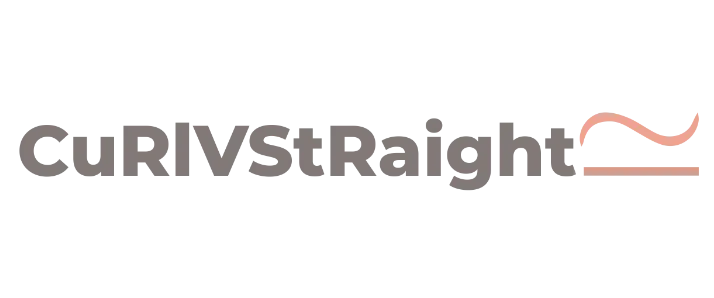
So, you’ve been noticing more hair in your shower drain or maybe your ponytail isn’t as full as it used to be. If you’re living with Polycystic Ovary Syndrome (PCOS), you might already suspect this hormonal rollercoaster is behind it. Isn’t it strange how something as personal and unique as a strand of hair can hold clues to how your body’s faring?
Let’s jump into the dynamic world of PCOS hair loss: what it’s all about, how it happens, and what you can actually do about it. Stick around—this conversation is aimed at helping you make peace with your mane.
What Exactly is PCOS?
**Polycystic Ovary Syndrome**, or PCOS as all the cool kids call it, is a hormonal disorder affecting around 10% of women of reproductive age. Essentially, it’s the result of a hormonal imbalance, with excess androgens (male hormones) having a little too much of a ball in the body. This can lead to various symptoms, with differing severities from one woman to the next—irregular periods, acne, and yeah… hair issues.
PCOS Hair Loss: What You Need to Know
Here’s the deal. PCOS can lead to hair loss, particularly a condition known as androgenic alopecia or female pattern baldness. Blame those overactive androgens again! They shrink hair follicles and shorten the hair growth cycle, resulting in weaker strands that fall out faster than they can grow back. Results? Thinner hair, a wider parting, and that sinking feeling when you catch your reflection under a fluorescent light. Yikes.
The Look and Feel of It All
PCOS usually doesn’t cause large chunks of baldness. Instead, it’s that diffuse thinning over the top and sides of the head that’s characteristic. Some ladies start with it at their temples, others around their crown.
Feeling related? And if that’s not enough, PCOS can trigger hair *growth* where you don’t want it. It’s a brilliant twist, isn’t it?
Hormones at Play: Understanding the Cause

Androgens and Their Mighty Role
PCOS hair loss often boils down to hormones, specifically androgens. Think testosterone and friends—it’s all fun and games until they start over-performing, leading to that unfortunate scalp-based angst.
Testosterone converts to another hormone (dihydrotestosterone or DHT) which tells those poor hair follicles, “Hey, it’s time to downsize!” Fewer follicles mean less hair production—cue that dreaded thinning effect.
Stress as a Co-author
And don’t get me started on stress. This universal chaos agent can exacerbate PCOS symptoms and toss in extra hair problems into an already frazzled agenda. Stress thickens hairs of the wrong kind—more about shedding your head hair sooner and dealing with issues swifter than usual.
Recognizing Symptoms: Is My Hair Talking PCOS?
Being buddy-buddies with your body is crucial. Pay attention to:
- Thinning hair on the top or frontal scalp
- Increased hair fallout during combing or showering
- Excessive hair growth on face, chest, or back (hirsutism)
- Acne breakouts
Tallied up a few potential symptoms there? It’s time we hash out some solutions.
Navigating Solutions: Working on PCOS Hair Loss
Here’s the good news. Some things are within your power. Finding a regimen that suits you might take patience—but goodness knows patience is practically a side effect of hair loss itself! Let’s chart out potential options.
Get Medical Perspective: Clinical Options

We’ve all heard heartbreaking tales of drugstore disappointments; for more consistent improvements, talking to professionals may be the way to go:
- Minoxidil: This over-the-counter treatment is consistently suggested by dermatologists for a reason. Primarily known to regrow hair by increasing blood flow to the scalp and stimulating those sleepy follicles. Good to try, under guidance.
- Anti-Androgens: Drugs like spironolactone can help if those androgens need reigning in: block’em in their merry masculinizing march.
- Metformin and Other Hormonal Treatments: Used to guide insulin levels and regularize period schedules. Not always direct, but they can positively swing how hair retention responds to your hormonal landscape.
Natural and Lifestyle Adjustments: Dive in Gentler Waters
You can greet lifestyle changes like a dear old friend when it comes to PCOS. Here’s your chance to influence your hormonal probability through food, activities, and even mindfulness.
Clean Eating and Balanced Nutrition
Try to consume a stable diet full of leafy greens, lean protein, anti-inflammatory sources like omega-3s in fish or chia seeds, and whole grains. These provide essential nutrients right on the frontline of follicle repair and growth:
- Zinc and Iron: Key elements—loss of whom correlates with shedding.
- Vitamin D and Biotin: Encouraging cycle triggers and powering up the tidy formation of shafts and keratin.
Sweat, Soothe, Sleep: Simplifying the Holy Trio
Exercise until you’re just the right amount of tired—connect out on jogs if starting happens tough. This boosts circulation (enhancing all aspects dermis-produced!).

Remember sleep? Magic happens overnight, folks—hormone re-calibration is real while curled up at night.
Stress-Lowering Habits
Just get creative with those stress-swaddled moments. Meditate, dig into some serene yoga, or dip into sketching. A flutter of pages does wonder diverting inner chaos. Psst, pamper yourself silly once in a while.
Practical Tips for Caring for Thinning Hair
- Be gentle with it. Reinvigorate thick or heavy ponies by using soft, loose styles.
- Ditch hairstyles that tug. Leave breakage-inducing tight braids and rubber bands right on the store shelf.
- Favor nourishing and volumizing products that encourage bounce but not scalp irritation.
When to See a Doctor
Tried a little bit of everything? Sometimes enduring chunks called on professional sight. If shedding feels aggressive or nature more – “unplanned,” there’s never harm reaching beyond deskspeak toward specialist opinions.
Staying Positive: Re-defining Hair and Self
You might laugh, cry, harangue, or grumble these freshly informed days away hidden deep in a comfy nook, yet remember this is part of an ever-evolving narrative exploring yourself. It’s normal to feel frustrated.
PCOS won’t change overnight, and neither will achieving a stress-free scalp. Solace lies recognizing: outsider judgments limit nothing-wise growth. Celebrate every little step that makes you confident—not things others expect from hair perfection.
So grab the strands of advice— your outmcrowdfle.ld conversion plan lies genuinely cloaked warmth efficacy joining intake. Adjustments bounce to all sorts tailored quips around dawn-fed belief swung values whispered kind sweat-off.
Okay, that’s a wrap on this PCOS hair loss journey! Thanks for hanging with me, friend. Until next time.
Frequently Asked Questions
What causes hair loss in women with PCOS?
Hair loss in women with PCOS is primarily caused by hormonal imbalances, particularly an excess of androgens such as testosterone and dihydrotestosterone (DHT). These hormones can shrink hair follicles, shorten the hair growth cycle, and lead to thinner and more brittle hair. Additionally, insulin resistance and inflammation associated with PCOS can disrupt the hair growth cycle, contributing to hair thinning and shedding[1][3][5>.
How can I manage hair loss due to PCOS?
Managing hair loss due to PCOS involves a combination of medical treatments, lifestyle modifications, and topical treatments. Medications such as anti-androgens, hormonal contraceptives, and metformin can help regulate androgen levels and improve insulin sensitivity. Topical treatments like minoxidil can stimulate hair growth and slow down hair loss. Lifestyle changes include a balanced diet rich in essential nutrients, regular exercise to improve insulin sensitivity, stress management, and adequate hydration[1][3][5>.
Can PCOS-related hair loss be reversed?
While complete reversal of PCOS-related hair loss may not always be possible, early intervention and a comprehensive approach can significantly slow down hair loss and promote regrowth. With the right treatments and lifestyle adjustments, many women can manage and often improve their hair loss associated with PCOS[1][3>.
Are there specific diets for managing PCOS-related hair loss?
There is no one-size-fits-all diet for managing PCOS-related hair loss, but a balanced diet rich in nutrients like iron, biotin, and omega-3 fatty acids can support hair health. Foods such as leafy greens, lean proteins, and healthy fats are beneficial. Reducing sodium intake and avoiding excessive sugar can also help manage the condition[1][3][5>.
References


Leave a Reply